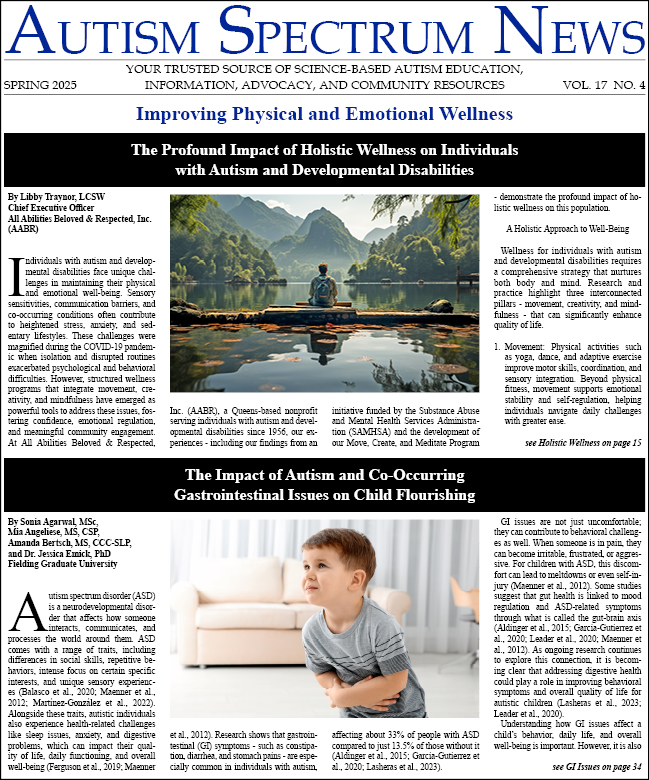-
Strategies to Support Communication and Address Challenging Behaviors
Individuals with Intellectual and Developmental Disabilities who face the greatest challenges most often have failed to acquire strategies to support communication. Most adults and children alike without verbal behavior are likely to develop a strong repertoire of challenging behavior. The young...
-
Language Intervention for School-Aged Children
Spoken language remains the most efficient means of communication. The ability to speak functionally with others consistently and robustly predicts positive life outcomes for individuals with autism spectrum disorder (ASD; Howlin et al., 2004). Not surprisingly, most interventions have focused on...
-
Communication Modality Decisions for Individuals with ASD
Individuals with autism spectrum disorders (ASD) have complex needs, and their challenges include social deficits, communication difficulties, and behavioral challenges (APA, 2017). The needs of individuals with ASD necessitate the expertise of several professions, including behavior analysis and...
-
Communication is Key to Building Functional Independence Skills in Adults with Autism
Over the past year, cities across the country have made great strides in creating an atmosphere where people with autism feel welcome and comfortable. Multiple cities have become certified autism-friendly cities, sports teams have designated certain nights as sensory-friendly events and autism...
-
Should All Nonverbal Young Children with Autism Immediately Have AAC Taught to Them?
Lack of speech is often the most obvious symptom of an autism spectrum disorder (ASD) and greatest cause of concern for parents of young children. For many families of children with ASD, having their child learn to talk is their primary goal. Children with ASD who learn to use spoken language as a...
-
Employing Theater Arts to Enhance the Lives of Individuals with ASD
The EPIC Players Inclusion Company is a theater based group in New York City, founded by Aubrie Therrien. EPIC’s goals include redefining the face of theater arts, creating employment opportunities for actors with Autism Spectrum Disorder, and providing the local community with an active theater...
-
Better Language Comprehension Through Brain Connectivity
Autism spectrum disorder (ASD) impairs communication skills, impacting the ability to engage and interact with others. The deficits in communication skills impact classroom performance for students with ASD, since comprehension of the English language is foundational to success within the United...
-
Why Emotional Literacy Is So Important
Social and emotional literacy develop over time and need to be nurtured just like any other skill such as math or riding a bike. Unlike math or bike-riding, however, the teaching of emotional literacy is often overlooked. It has been referred to as the “missing piece” of education despite its...
-
Improving the Written Expression of Children with ASD
Writing has become an increasingly important element across curricular areas. However, many young children, including children with autism spectrum disorders (ASD), struggle with this key literacy skill. While it has been well-documented that many children with ASD have handwriting deficits,...
-
Autism and Asperger’s: Two Distinct Disorders or One Disorder of Varying Symptom Severity
Autism has been conceptualized as a biologically determined set of behaviors occurring with varying presentation and severity that is likely as the result of varying cause (for review, see Goldstein, Naglieri, & Ozonoff, 2008). The disorder occurs significantly more often in boys (Smalley,...




